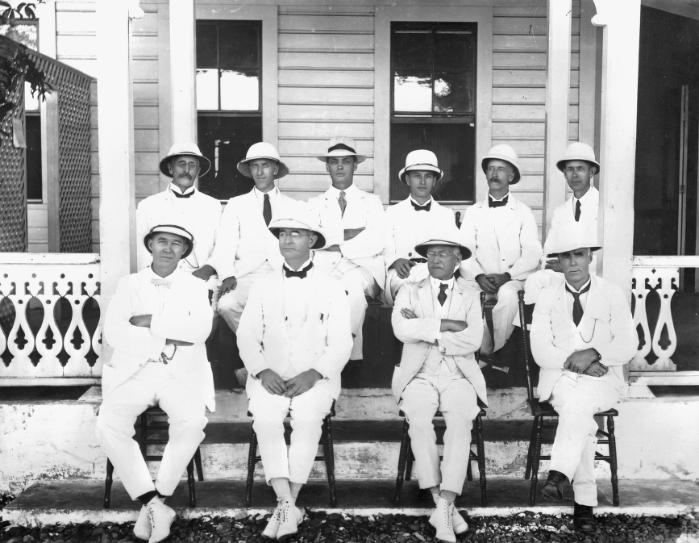|
1970 Western Samoan General Election
General elections were held in Western Samoa on 7 February 1970. All candidates ran as independents, with voting restricted to matais and citizens of European origin ("individual voters"), with the matais electing 45 MPs and Europeans two. Following the election, Tupua Tamasese Lealofi IV became Prime Minister. Background A parliamentary debate on introducing universal suffrage was held on 27 March 1969. The motion by Letele Taneolevao Siaosi, the youngest member of parliament, would still limit candidacy to the 8,500 matais, but allow all citizens over the age of 21 (numbering over 30,000) to vote in elections. Prior to 1967 elections, the number of matais was increased significantly, as candidates seeking to increase their vote were able to bestow titles on people to create new matai. Following the elections, a law was introduced that prohibited conferring of a matai title on anyone younger than 21. Although Prime Minister Fiame Mata'afa had been in favour of universal suff ... [...More Info...] [...Related Items...] OR: [Wikipedia] [Google] [Baidu] |
Fono
The Legislative Assembly ( sm, Fono Aoao Faitulafono a Samoa), also known as the Parliament of Samoa ( sm, Palemene o Samoa), is the national legislature of Samoa, seated at Apia, where the country's central administration is situated. Samoan Parliament is composed of two parts: the O le Ao o le Malo (head of state) and the Legislative Assembly. In the Samoan language, the Legislative Assembly of Samoa is sometimes referred to as the Samoan Fono while the ''government'' of the country is referred to as the Malo. The word ''fono'' is a Samoan and Polynesian term for councils or meetings great and small and applies to national assemblies and legislatures, as well as local village councils. The modern government of Samoa exists on a national level alongside the country's '' fa'amatai'' indigenous chiefly system of governance and social organisation. In his or her own right, the O le Ao o le Malo can summon and call together the Legislative Assembly, and can prorogue or dissolve P ... [...More Info...] [...Related Items...] OR: [Wikipedia] [Google] [Baidu] |
